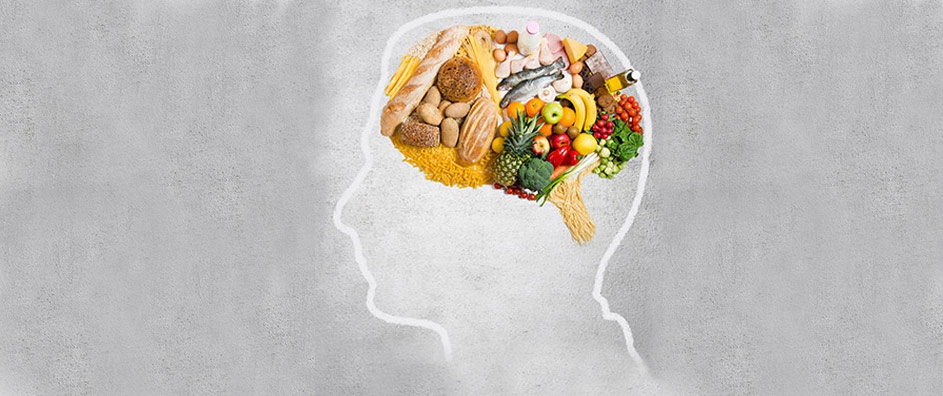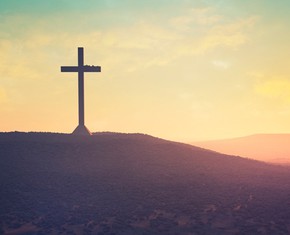The views expressed in our content reflect individual perspectives and do not represent the authoritative views of the Baha'i Faith.
Starting on March 2nd every year, I wake up at five a.m. each day, quietly amble in the dark into the kitchen, and put on some meditative music such as Jamie Findlay’s beautiful solo guitar CD entitled Reflections or the first Badasht album. Then I prepare some peanut butter sandwiches and a glass of milk and eat breakfast while reading my daily meditation books until the sun rises over my home in the city of Orange, CA. After saying a prayer in the early morning peace of my living room, I abstain from eating or drinking anything until around 6pm, breaking my fast with another prayer as the sun goes down. I do this for nineteen days — an entire Baha’i month — changing the schedule mid-way through for Daylight Savings Time.
Why do people of faith choose to fast? As a Baha’i, I’m always looking for common ground among the world’s spiritual traditions. According to The Perennial Dictionary of World Religions, fasting has been an integral part of almost every religious, spiritual or mystical tradition, typically as a form of asceticism (from the Greek term ’askesis’ meaning an exercise, training or practice).
Jews, for example, fast each year on the Day of Atonement (Yom Kippur) as part of a day of solemn penitence before beginning the next year in the Jewish calendar. They recite special prayers asking for forgiveness, remembering loved ones who have passed on, and voiding any hasty or thoughtless vows.

Muslims traditionally break fast with dates and tea during Ramadan
Christians also fast during Lent, which emulates Jesus’ forty day fast before He began His ministry. Muslims fast for thirty days during the lunar month of Ramadan, seeking nearness to God, self-control, and empathy for the poor; and Sufis embrace voluntary fasting as a way of channeling natural energies. Members of Jainism, an ancient Indian religion, conclude each year with a penitential fast, and the Laws of Manu direct Hindus to fast as a way to make amends for transgressing rules of conduct.
Native American rites of passage often require initiates to fast for four days and submit to various kinds of self-discipline before entering adulthood. Some Shamanistic religions also prescribe temporarily abstaining from food or sex in order to maintain ritual purity and to mobilize supernatural powers.
Baha’is fast for a number of reasons, all spiritual in nature. First, fasting expresses humility, a sign of willingness to submit to God’s Will. Since fasting can’t be enforced by others, it confirms one’s individual loving surrender to God and commitment to spiritual growth. For Baha’is, as with most people of faith, fasting also serves as a reminder of the importance of detachment from this world:
This material fast is an outer token of the spiritual fast; it is a symbol of self-restraint, the withholding of oneself from all appetites of the self, taking on the characteristics of the spirit, being carried away by the breathings of heaven and catching fire from the love of God.” – Selections from the Writings of Abdu’l-Baha, pp. 69-70.
Fasting serves as a symbol of our commitment to keep ourselves free from potentially destructive desires, addictions, and appetites of self and ego. While fasting emphasizes our physical limitations, it also nourishes the spirit, since the reality of fasting is remembrance of our dependence on God, which is spiritual food for the one who fasts. For this reason, the Baha’i Fast is a time especially devoted to prayer, meditation, and mindful introspection.
During the Fast, we often feel additional gratitude for examples of God’s grace and generosity in our lives. At the same time, fasting also increases concern for the well-being of others, making us more aware of the needs of the poor, hungry and sick, more prone to practice charity during the coming year. According to the Baha’i Writings, fasting prepares us spiritually for tests in the future, but also makes us more receptive to spiritual gifts. In fact, one of the special prayers revealed for the Baha’i Fast refers to fasting as the source of a “Hidden Gift.” I suspect each person experiences this gift differently.
Baha’u’llah reminds us, however, of the need for moderation; we only fast if we are able to do so. Baha’i children under fifteen years of age, pregnant or menstruating women, travelers, and those who are elderly or sick don’t fast. Instead, some choose to find alternative forms of symbolic sacrifice to practice during the nineteen days of the Baha’i Fast.
Finally, fasting creates a feeling of unity with Baha’is around the world, as well as with other religious communities who also fast. When my Muslim, Christian and Jewish friends, family members, neighbors, or co-workers are fasting during Ramadan, Lent, and Yom Kippur, I strongly identify with them and have an experiential feeling for the spiritual meaning behind their practice.
Ultimately, I find that fasting creates a moving source of appreciation for the spiritual dimensions of life. It’s less about food than about deepening my spiritual connection with my Higher Power, with my own inner life, and with the lives of others.
















Comments
Sign in or create an account
Continue with Googleor